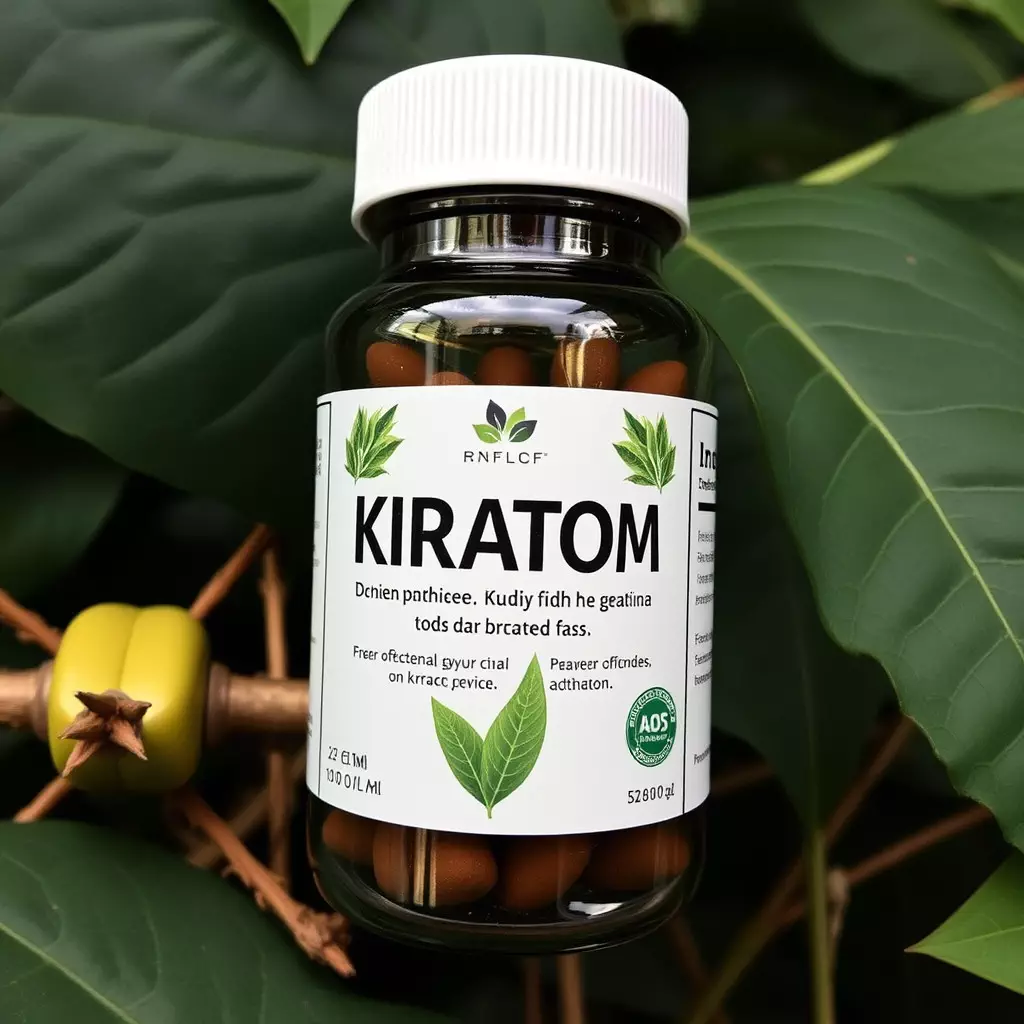Ginger and kratom herbs and botanicals are celebrated for their synergistic benefits in promoting digestive wellness. Ginger, a traditional medicine staple, is rich in bioactive compounds like gingerol and shogaol, which aid digestion by stimulating gastric motility, reducing bloating and flatulence, and soothing irritated intestinal linings with its anti-inflammatory effects. Its antioxidant activity protects the gut against oxidative stress. When combined with kratom, particularly strains like Bali or Indo, this holistic approach is further enhanced as the alkaloids in kratom may support a healthy gut lining and modulate the body's response to pain and stress, which can impact digestive health. This combination targets both symptoms and underlying issues for effective digestion and overall gastrointestinal health. Users are advised to consult healthcare professionals before incorporating these herbal supplements into their regimen, considering their specific health needs and conditions.
Discover the transformative effects of ginger on digestive health, a natural remedy that has long been revered for its healing properties. This article delves into the science behind ginger’s role in promoting gut wellness and how it synergistically interacts with kratom herbs and botanicals to bolster overall digestive health. Learn practical ways to incorporate this potent ingredient into your diet, enhancing your gastrointestinal function and harnessing the complementary benefits of kratom. Join us as we explore the intersection of traditional wisdom and modern science to uncover the full potential of ginger for a healthier digestive system.
- Unveiling Ginger's Role in Digestive Wellness: A Comprehensive Overview
- Ginger and Its Synergistic Effect with Kratom for Enhanced Digestive Health
- Integrating Ginger into Your Diet for Optimal Gastrointestinal Function and Kratom Benefits
Unveiling Ginger's Role in Digestive Wellness: A Comprehensive Overview

Ginger, a potent root with a storied history in traditional medicine, has garnered attention for its beneficial effects on digestive health. This rhizome, revered across various cultures for its therapeutic properties, contains bioactive compounds such as gingerol and shogaol, which are known to aid digestion. Ginger stimulates gastric motility, thereby facilitating the movement of food through the gastrointestinal tract. Its carminative effects help to alleviate bloating and flatulence, making it a valuable remedy for individuals experiencing indigestion. Additionally, ginger’s anti-inflammatory properties can soothe irritated intestinal walls, offering relief from inflammatory conditions like gastritis and colitis. Its antioxidant capacity also protects the digestive system from oxidative stress, a common contributor to gastrointestinal disorders. While ginger stands alone in its efficacy for digestive health, it is often complemented by other herbs and botanicals, including kratom. Kratom, particularly certain strains like Bali or Indo, is known for its ability to modulate the body’s response to pain and stress, which can indirectly impact digestive function. The alkaloids present in kratom leaves may also aid in maintaining a healthy gut lining, further enhancing the overall wellness of the digestive system when used in conjunction with ginger. Together, these two natural powerhouses offer a holistic approach to digestive health, addressing both the symptoms and underlying causes of digestive issues.
Ginger and Its Synergistic Effect with Kratom for Enhanced Digestive Health

Ginger, a potent root long revered in traditional medicine for its digestive benefits, has garnered attention for its synergistic effect when combined with kratom herbs and botanicals. This combination is particularly beneficial for those seeking to enhance their digestive health. Ginger’s natural carminative properties aid in the relaxation of gastrointestinal muscles, promoting effective digestion and easing discomfort associated with conditions like indigestion and bloating. Its anti-inflammatory qualities also make it a valuable ally against digestive tract irritations and inflammation, which can be exacerbated by various dietary factors or stress.
Kratom herbs and botanicals, derived from the Mitragyna speciosa tree, have been traditionally used in Southeast Asia for their wide range of health benefits. Within the realm of digestive wellness, kratom is known to stimulate gastric juices and bile production, facilitating improved nutrient absorption and overall gastrointestinal motility. When combined with ginger, the two work synergistically: ginger’s gastroprotective effects complement kratom’s digestive-enhancing properties, creating a potent duo that can help maintain a healthy digestive system. This combination is particularly promising for individuals seeking natural ways to support their digestive health, as it harnesses the therapeutic strengths of both ginger and kratom herbs and botanicals.
Integrating Ginger into Your Diet for Optimal Gastrointestinal Function and Kratom Benefits

Ginger, a potent root with a long history of use in traditional medicine, offers remarkable benefits for gastrointestinal health. Its active components, including gingerol and shogaol, possess anti-inflammatory and antioxidant properties that can alleviate digestive issues such as bloating, gas, and nausea. Consuming ginger can stimulate saliva and bile production, facilitating better digestion and nutrient absorption. Moreover, its carminative effects help to expel intestinal gas, providing relief from indigestion and pain associated with irritable bowel syndrome. Incorporating ginger into your diet can be as simple as adding freshly grated ginger to your meals or sipping on ginger tea. Its versatility allows for its inclusion in a variety of dishes, making it an accessible option for those seeking to enhance their digestive health.
While ginger stands alone in its digestive support capabilities, the integration of kratom herbs and botanicals into your wellness regimen can further complement these efforts. Kratom, derived from the leaves of Mitragyna speciosa, has been traditionally used to promote overall well-being and can also have a synergistic effect with ginger. Certain strains of kratom are known to aid in maintaining healthy digestion, potentially reducing inflammation and supporting the body’s natural detoxification processes. When selecting kratom products, it is crucial to opt for high-quality, ethically sourced options from reputable vendors to ensure safety and efficacy. By thoughtfully combining ginger with kratom herbs and botanicals, individuals can potentially enhance their digestive function and overall health. Always consult with a healthcare provider before introducing new herbal supplements into your routine, especially if you have existing health conditions or are taking other medications.
Incorporating ginger into your diet can significantly bolster digestive health, as evidenced by its longstanding use in traditional medicine. The synergistic effect of ginger combined with kratom herbs and botanicals further enhances this benefit, offering a natural solution for those seeking to improve their gastrointestinal function. By understanding ginger’s role and integrating it into daily meals, one can harness its therapeutic properties to maintain digestive wellness effectively. This article has shed light on the multifaceted advantages of ginger, underscoring its importance in promoting a healthy digestive system with the added support of kratom.






